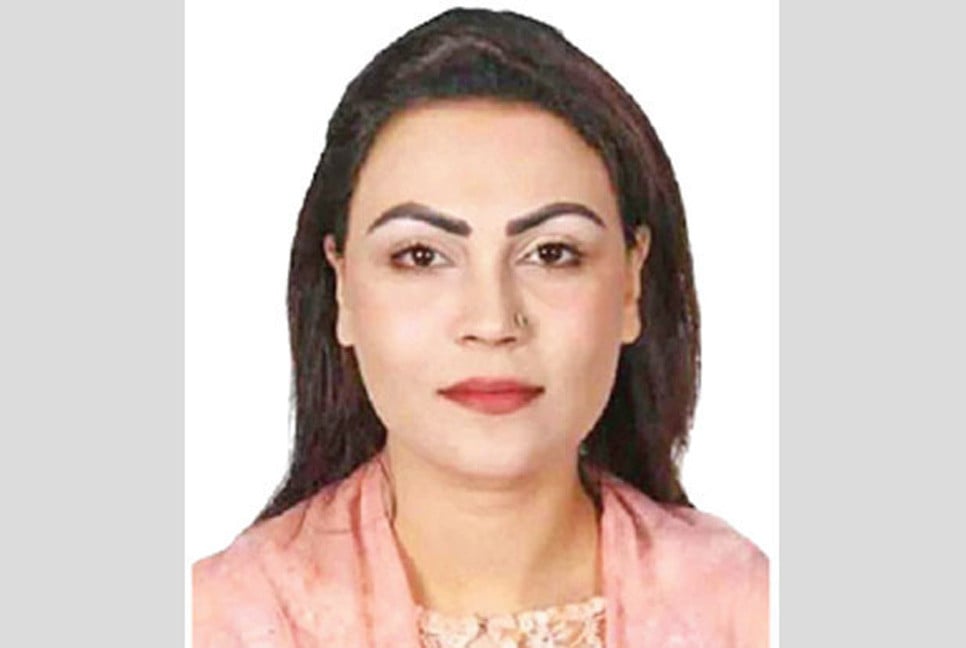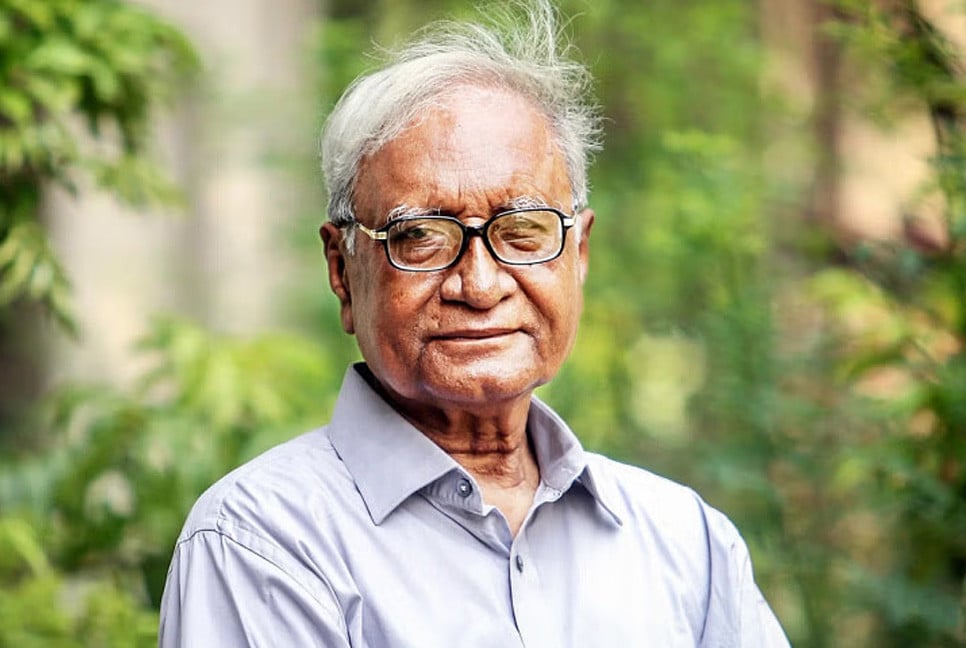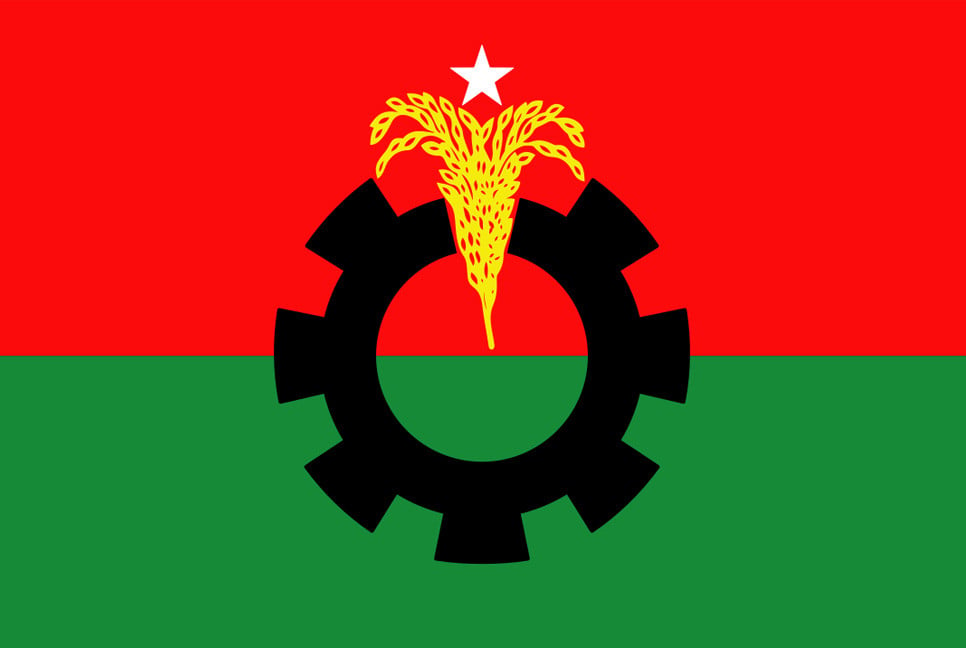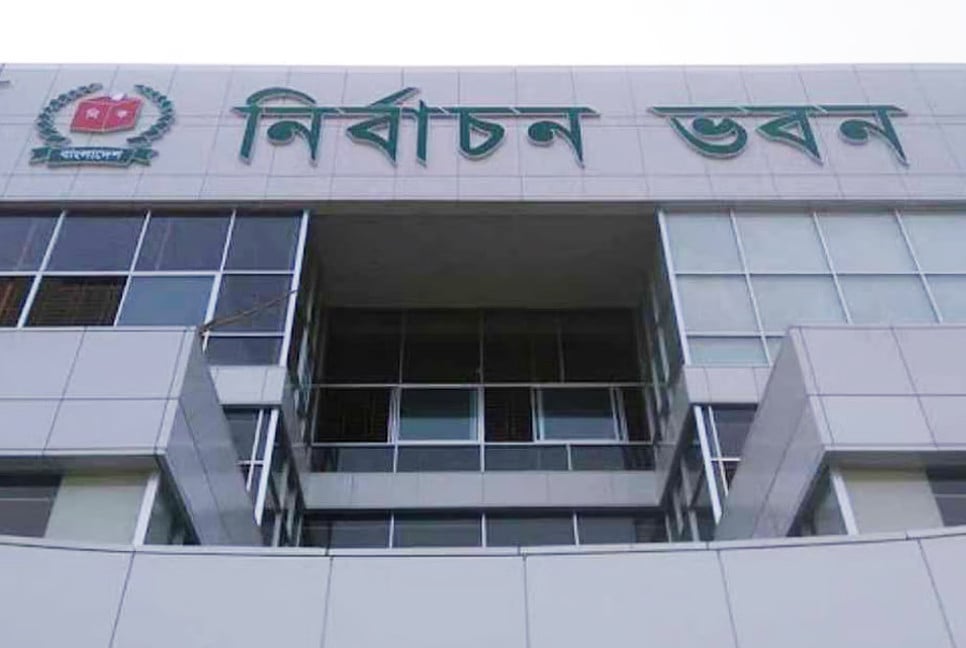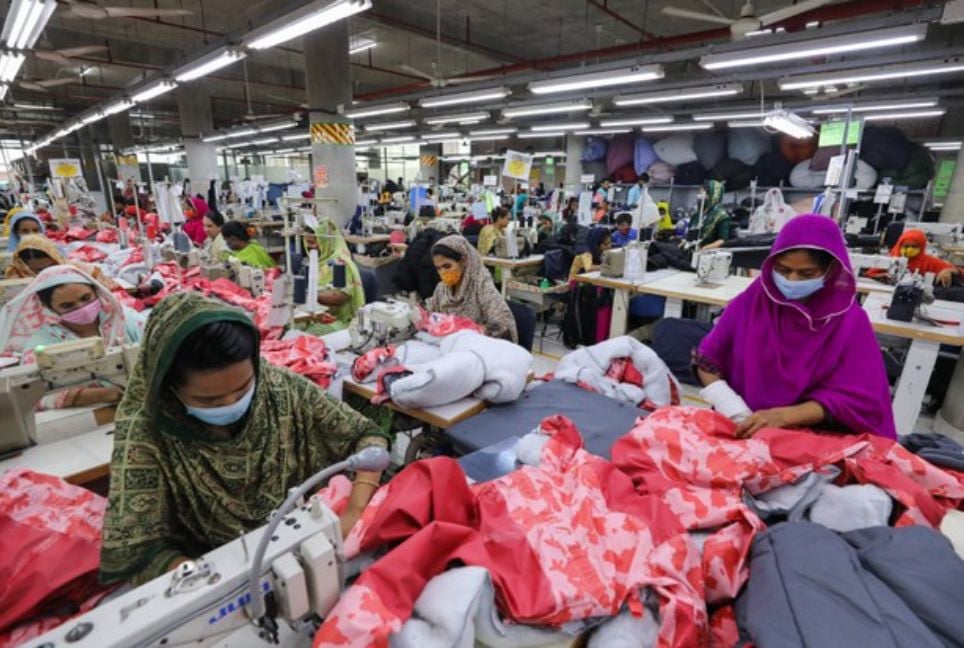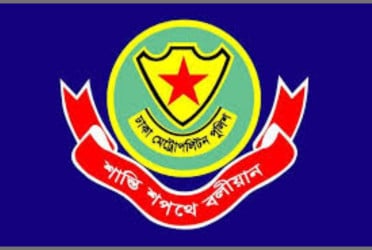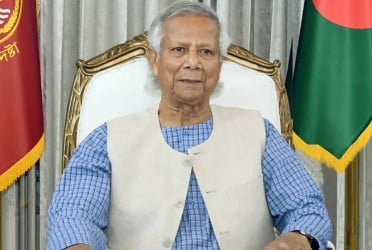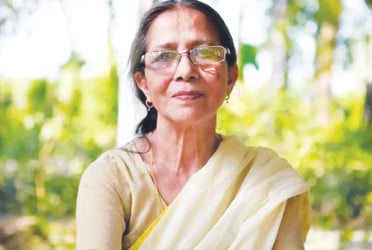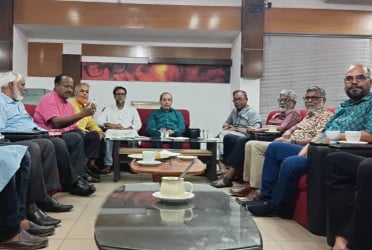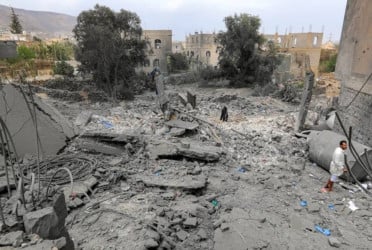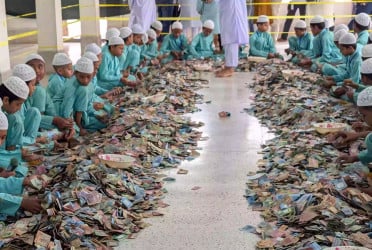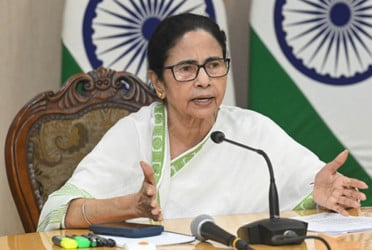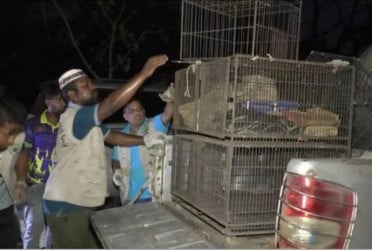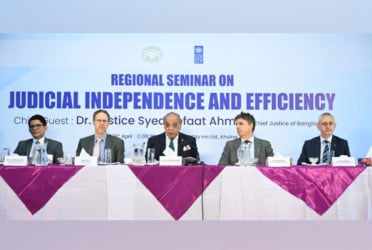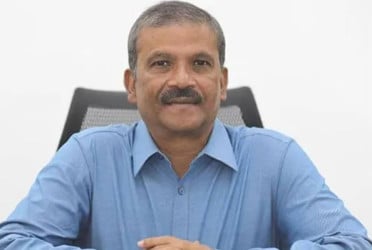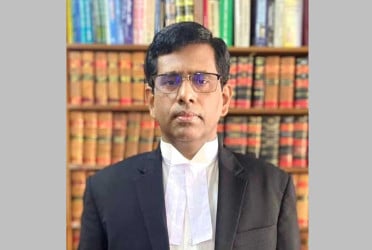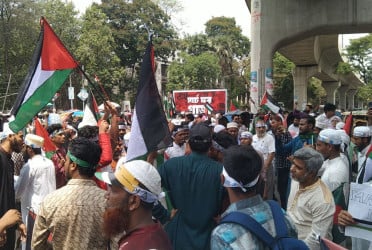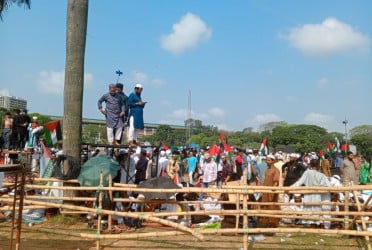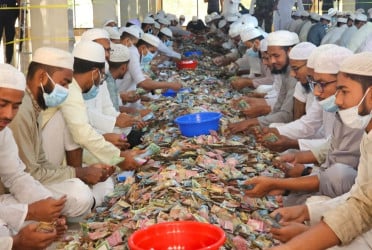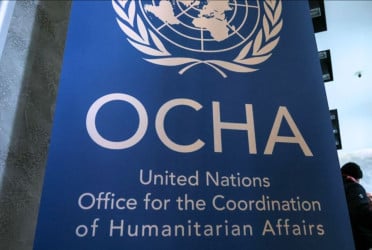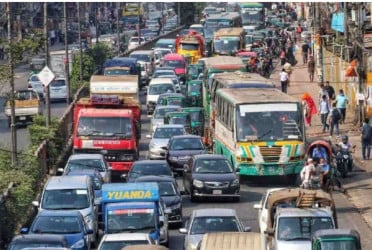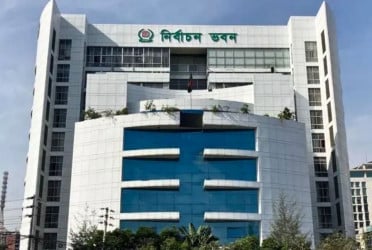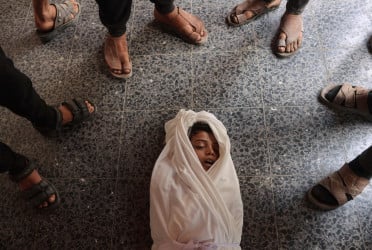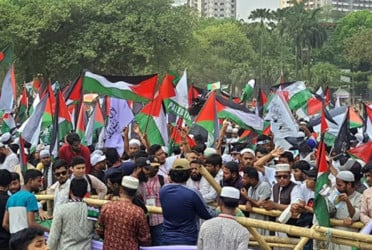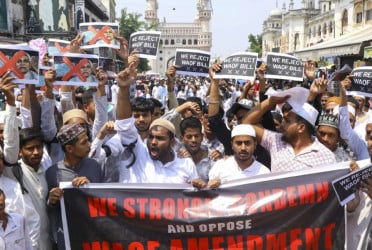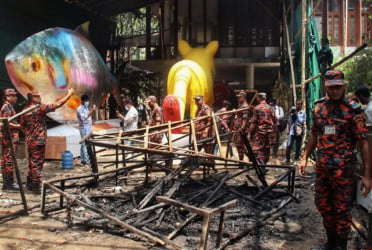Thousands of people leave their homeland with a hope of developing living quality, and work inhumanly to manage money for family in the country. Hence, the economic conditions of the family develop.
But, at the end of the day, many of these remittance fighters return home barehanded and some of them with an unstable state of mentality.
However, no one is looking after these helpless “remittance fighters” who play a role in keeping the wheels of the country’s economy moving. Their welfare remains limited only on paper.
According to concerned authority, this year too, about 80,000 expatriates have returned home almost empty-handed.
Although there is a desk for expatriates at the airport, the on duty officials overlook many things. But, private organizations working at the airport receive these people and take them to their families.
Abul Kashem, 80, was in Saudi Arabia for 30 years. He returned to the country on 18th January with mental instability. But there was no one to receive him when he landed at the Hazrat Shahjalal International Airport (HSIA). After five hours of roaming aimlessly, the old-man was received by the BRAC Migration Centre.
After about a week, BRAC Migration authorities found out his address and handed him over to his family members living in Ward 25 of Halishahar in Chittagong. Exactly, 70 days earlier, this helpless “remittance fighter” died at Chittagong Medical College Hospital.
Bangladesh Pratidin contacted Mr Kashem’s son Nur Hossain. He said: “We have reached the expatriates’ welfare and overseas employment ministry, and called them over and over again, but nobody helped us. Finally, my father died.”
Layek Mia, 24, from Fenchuganj in Sylhet, flied five years ago for Oman as a hotel worker hoping for a better life. He returned home mentally unstable on 26th October. The expatriate was not able to recognize anyone since he landed at HSIA. Later, Al Amin Nayan led BRAC Migration Centre team found his family and handed him over.
Mr Layk’s younger brother Siddik Ahmed expressed the uncertainty loomed over of his brother’s healthcare. He said: “I don’t know how my brother will survive, as our financial condition is critical.”
It was informed that most of the women returning from abroad are facing the worst. Many of them are victim of physical and sexual abuse, and they don’t share it with family, fearing social humiliation.
A victim’s brother said that her sister returned home with multiple heath complications, including reproductive health. He said: “She has faced relentless abuse and is now mentally unstable. She can hardly work.”
After spending seven years in exile and sending his hard-earned money to his family, Abdul Haque, 42, of Feni’s Parshuram still couldn’t find a place for himself when he returned home on Monday. The expatriate, who has been suffering from illness for long time, was waiting for his wife and children at HSIA, but they disappointed him. Later, he sought help from the Airport Armed Police Battalion (APBN). He is currently staying at the BRAC Migration Center.
In 2017, Abdul Haque flied for Saudi Arabia as a “house driver” and sent all his earned money for wife and children. But, he was not able to send money for one year because of his illness, that’s why the relations started to worsen.
Md Iman Molla, 49, from Manikganj, had migrated to Malaysia six months ago, but workload leaved him paralyzed. Hence, his dreams were nipped in the bud. Besides, he was deprived from the promised salary, which led him to mental breakdown. Finally, on 25th October, he returned home helpless. He again flied for Malaysia as his family spent all the money he accumulated for his healthcare.
Director of wage earners’ welfare board under expatriates’ welfare and overseas employment ministry Shoaib Ahmad Khan told Bangladesh Pratidin: “We can do nothing overlooking the rules.”
“If expatriate returns helpless and jobless, we provide Tk1.5 lakh as compensation. In that case, they have to apply us within 6 months of homecoming,” he furthered.
Answering to a question, he said: “We provide ambulance service through an ‘expatriate desk’ in case anyone returns with illness.”
He assured of inspecting the issue, and bringing involved to book if any negligence is found.
If anyone who went abroad through legal channel returns within 6 months, failing to find a work, they will get Tk50,000.
It is known that the BRAC has helped at least 109 returning Bangladeshi expatriates. Most of them were women. Some of them tried to enter Europe illegally, while some returned from Malaysia and Turkey after being tortured.
Many of them were victims of physical and mental torture while some were victims of sexual harassment. Others were receiving low wages for overtime work.
Among the returnees, 87 were women and 20 were men. Of these, 79 returned from Saudi Arabia, 12 from Oman, five from Qatar, two each from Jordan, the United Arab Emirates and Malaysia, and one each from Libya, Kuwait and Turkey.
Shariful Hasan, associate director (Migration and Youth Platform) at BRAC told Bangladesh Pratidin, “The government has not taken much initiative to rehabilitate the helpless ‘remittance warriors’ who have returned.”
He said: “Many of those working at the airport do not know what their job is. Our workers have to work a lot as many of the expatriates are returning home with an instable mental state.”
Responding to a question, he said: “The actual number of homecoming Bangladeshis expatriate could be four to five times higher.”
However, about 80,000 expatriate have returned until November this year. Almost half of them came from Saudi Arabia.
The families of deceased expatriates get only Tk3 lakhs. Mr Hasan said that it is painful that they cannot provide adequate support to such vulnerable returnees.
“There is a lack of structural support for those returning at the airport and a call has been made for Standard Operating Procedures (SOPs) to define the roles of government offices,” he furthered.
Dr Tasneem Siddiqui, a professor at Dhaka University also the founding president of NGO RMMRU, said: “Embassies should come forward to collaborate with local Bangladeshi communities abroad to monitor migrant workers and help them before the situation worsens.”
She recommended setting up more shelters in host countries for mental health support, ensuring employment for those unable to return to their families, and increasing international recognition for workers' rights and children born abroad.
According to sources, 64,438 expatriates returned to the country with out-pass in 2019. Then, after the start of the Corona pandemic in 2020, expatriates started returning home. At that time, the expatriate welfare desk started keeping track of all expatriates returning home.
According to the desk’s information, each year on an average 4 lakh expatriates return to country. Although most of them came to the country on leave, and went to the destined countries. However, the rate of homecoming helpless expatriates has increased recently.
According to the wage earners welfare board, 80,811 expatriates have returned to the country empty-handed till December 8, 2023. Of these, 78,079 are male workers and 2,732 are female workers.
Concerned people fears that the number may increase further.
Although the ministry didn’t provide this year’s information, a source said: “Like previous years, about 80,000 expatriates have returned to the country until November this year. More than half of them returned from Saudi Arabia.”
Translated by Afsar Munna


